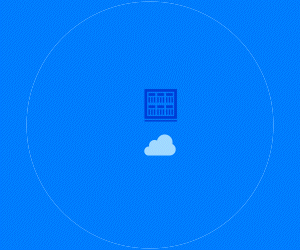Universities Rely on Third-Party Providers for Help With Cloud Tech
The project that laid the foundation for much of Enquizit’s cloud-based work is associated with the college experience. In 2010, the company helped build the online version of the Common App, the site that enables high school students to apply to multiple colleges with one application.
This site attracts millions of students each year who can apply to more than 1,000 colleges — and they generally have only from August through February to do so. The college application process is stressful enough without adding website downtime due to overload.
Enquizit leveraged cloud technologies to keep the website running under the onslaught of nervous high schoolers, letting the nonprofit organization that runs the Common App focus on its mission rather than needing to assign people to the heavier lift of keeping its network running.
Today, universities including Harvard University, New York University and The Wharton School of the University of Pennsylvania have used Enquizit services to facilitate their migrations to the cloud.
READ MORE: Discover how modern data platforms fuel success in higher education.
Security Matters When Sensitive Data Is Transferred to the Cloud
Colleges’ vast lakes of data are rich targets for bad actors who are looking for personally identifiable information, for proprietary or sensitive material — or who just want to disrupt a system by stealing, altering or even destroying data.
Constant surveillance and logging are necessary to watch for threats within a network, and this is an all-encompassing job. Again, universities need to educate students; assigning staff who have to keep the school’s IT systems running to watch for bugs, bots and other malware takes them away from those duties.
Look at an example from the federal government: Login.gov, the single sign-on service that gives a citizen access to any government site with only one username and password. As its homepage states: “Protect your users’ information with the highest standards of digital security and user experience. Login.gov handles software development, security operations, and customer support so you don’t have to.”
Enquizit built Login.gov based on its experience with the Common App, which also contains sensitive information such as students’ home addresses and Social Security numbers.
Storing this sensitive information in the cloud means that the data is protected with the most up-to-date security tools, and it remains separate from a physical server that could be used as a portal to access other critical data.
When an application is deployed into the cloud, the college inherits the system security that those cloud providers have already built. And the platform built by Enquizit allows universities to take advantage of security updates done by the cloud providers at scale, at a speed that a college couldn’t keep up with while continuing to carry out its responsibilities.
Click the banner to learn how your institution can benefit from a hybrid cloud environment.













